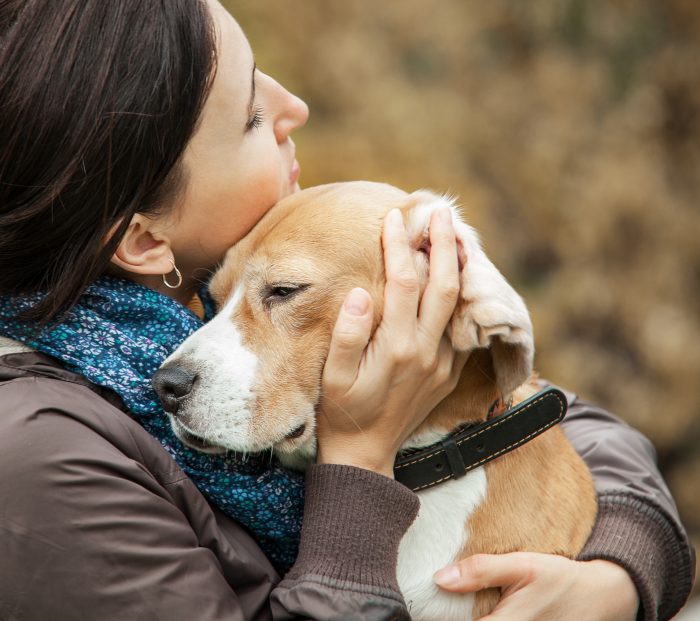Your head is spinning, and your mind has gone blank. Your mouth feels dry, and you somehow can’t muster the words to speak.
As a pet parent, nothing can prepare you for the moment you hear your dog, a member of your own family, has cancer. And even though you’ve heard it could happen to dogs, you never thought it would happen to your dog.
No matter what your body may be screaming in that moment, do not panic. Many dogs live through a cancer diagnosis and now is not time to mourn the living. As your dog’s caretaker, providing the best treatment possible with a clear state of mind is your best bet to fulfilling a longer, happier life.
Once you’ve gathered yourself, it’s time to set a plan in motion to attack this disease head on. Here are four steps to take when your dog has cancer.
Understand Your Dog’s Condition
The vet just broke the news: your dog has cancer. As hard as it may be from this emotional state of mind, now is the time to learn as much as you can about cancer in dogs so you and your dog can prepare to face this disease head on.
Don’t hold back on asking all of the questions on your mind. If your veterinarian doesn’t have the answers or if you falter in asking every question in that moment, he or she can point you to trustworthy sources.
Questions to consider asking your vet are as follows:
- What does this diagnosis mean?
- What can I expect with this type of cancer?
- What is the prognosis?
- What options do we have for treatment? How much time is required for each?
- What will happen if I choose not to pursue treatment?
- How else can I make my dog feel comfortable during this time?
- Do you recommend any specialists?
- Are there any nutrition plans to help fight, or ease, this cancer?
- How do I know if my dog is in pain?
- How do I know if it is time to euthanize my dog?
- What other options do I have if I do not believe in euthanasia?
In addition, consider asking yourself the following questions:
- What is my dog’s temperament? How can I expect him to react to this type of treatment?
- How big is my dog? What is my plan if he is too large to carry and cannot stand up on his own?
Knowing what to expect can significantly lower worry and stress. Taking treatment into your own hands—from selecting what’s right for you and your family, to learning how to administer it properly—can help you feel that much more in control.
In the end, no matter what your vet says, leverage your newfound understanding as a foundation for hope. Statistics show quantity, not quality, and there are plenty of cases of dogs who’ve lived a full and happy life past their prognoses.
Surround yourself with emotional support
As you care for your dog, it’s essential that you are cared for, too. Sharing the burden of pain with people you trust can stave off sadness. Consider reaching out to other pet owners who have battled a similar situation, whether through a support group or within your extended network of friends. Not only can they truly empathize with your situation; they can also give you firsthand insight and tips.
Always remember: you are not alone. There are plenty of people rooting on your dog’s success—and yours.
Seek financial assistance if necessary
During this sensitive time, a financial burden is the last thing you need. When discussing treatment options with a vet or veterinary oncology specialist, ask honestly about the cost.
If traditional treatments fall out of range, don’t fret. Ask about places that can contribute financial assistance. You might also consider consulting a wellness expert about natural care, from altering your dog’s diet to incorporating a new health regime.
No matter which route you choose, stand by your decision and rest assured that you are doing your best for your dog.
Enjoy the present
As difficult or insensitive as it may seem to enjoy today, it is also, perhaps, the most important step of all. Cancer or not, no pet owner can anticipate how long their dog will live. If laughter truly is the best medicine, then living life to the fullest with your pet is the most powerful treatment of all.
Hope is not lost. With the right set of knowledge, a proper plan for treatment, the right people around you, and your beloved pup before you, there is no problem too large to tackle.






